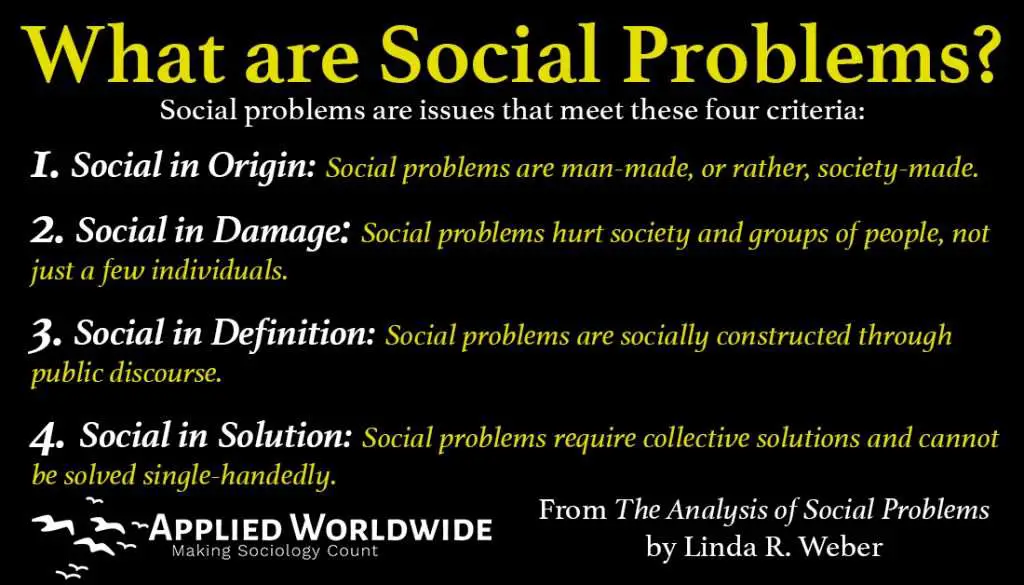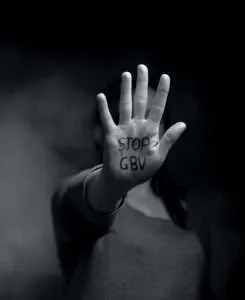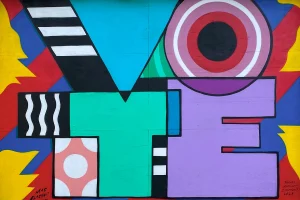A social problem is any condition or behavior that has negative consequences for large numbers of people and that is generally recognized as a condition or behavior that needs to be addressed. The issue of social problem is a complex issue that cannot be addressed haphazardly. Therefore, I shall delicately approach the social problem of rape and sociological solutions.
Sociologists have tried to take a less biased approach with mixed results. Most of the early sociological works on social problems held that a social problem exists when there is a sizable difference between the ideals of a society and its actual achievements. From this perspective, social problems are created by the failure to close the gap between the way people want things to be and the way things really are (Harold R. Kerbo, 2006). Thus, by implication, rape is a social problem because there is no sane society in existence that supports the menace of rape.
Social Constructivism and the Social Problem of Rape
Similarly, social constructivists, who have become the dominant school in social problems research, take a different position to arrive at the meaning of social problems by holding that a social problem exists when a significant number of people believe that a certain condition is in fact a problem. Here, the public (not a sociologist) decides what is or is not a social problem. The sociologist’s job is to determine which problems affect a substantial number of people (Blumer 1971; Spector and Kitsuse 1973).
From the above perspective, rape did not become a social problem until gender activists and news reports attracted the public’s attention to the menace. Using this ideology, I will definitely agree that Rape is a social problem that had been bewildering the universe for a very long time. There have been numerous outcries of activists around the world condemning this inhumane and dehumanizing behaviour. In fact, International law defines rape as a crime against humanity and a potentially genocidal act.
Sociology and Social Problems

Generally, sociology is a social science that uses various methods of empirical investigation and critical analysis to develop a body of knowledge about social order, social change, the study of society, human social behaviour, patterns of social relationships, social interaction and culture that surrounds everyday life.
Ideally, sociology is interested in how we as human beings interact with each other (the pattern of social interaction); the laws and principles that govern social relationship and interactions; the influence of the social world on the individuals, and vice versa (Giddens, 1982). With the above clarifications, the problems, causes and solutions to rape become an imperative research for sociologists.
The Social Problem of Rape
Hence, rape as a social problem can be viewed as a type of sexual assault in which one or more individuals forces sexual contact on another individual without consent. Etymologically, the word rape is from the Latin verb rapere, which means ‘to seize or take by force’. It is a forced, unwanted sexual intercourse; it is sometimes also called sexual assault, which can happen to both men and women of any age (Medhelp, 2008)
In a broader sense, Anne L. B. (200) views rape as unlawful sexual activity, most often involving sexual intercourse, against the will of the victim through force or the threat of force or with an individual who is incapable of giving legal consent because of minor status, mental illness, mental deficiency, intoxication, unconsciousness, or deception. Also, there is a need to clarify the misconception that Rape is always a violence act.
Rape can definitely occur when the perpetrator makes use of some tricks or deceptions to deceive his/her victim(s) without any violence. To support this claim, Medhelp (2008) explains that rape can also occur when someone forces or tricks another person into unwanted sexual activity, even if actual physical violence is not involved.
Modern Definition of Rape
Though, the modern definition of rape has shown that it can be committed by any sex yet researches and realia examples have shown that 95% of rape cases are carried out by men. In January 2013, “An Overview of Sexual Offending in England and Wales,” the first ever joint official statistics bulletin on sexual violence released by the Ministry of Justice (MoJ), Office for National Statistics (ONS) and Home Office, revealed: Approximately 85,000 women and 12,000 men (aged 16 – 59) experience rape or attempted rape or sexual assault by penetration in England and Wales alone every year.
The above has shown that women are more vulnerable to rape than men, hence, this article will focus on rape committed against women. We will begin to wonder why the issue of rape, despite the global condemnation, refuses to subside. This curiousity will propel us to the macro-sociological theory of rape.
Macro-sociological Theory of Rape
The most interesting thing about sociologists is that they did not only study social events, interactions, and patterns but they also develop theories in an attempt to explain why things work as they do. A sociological theory seeks to explain social phenomena and according to Allan (2006) these sociological theories can be used to create a testable proposition, called a hypothesis, about society. In this article, I critically discuss one macro-sociological theory of rape that attempt to explain why rape cases have seized to stop.
Feminist Theory to the Social Problem of Rape
This theory believes that rape functions as a mechanism of social control in patriarchal societies (Brownmiller, 1975; Riger and Gordon, 1981). They further argued that argue that rape and the fear of rape enable men to assert their power over women and maintain the existing system of gender stratification (Adamec and Adamec, 1981). The implication of patriarchal society is that women are only regarded as pleasure for men without any substantial usefulness. To back this up, Clark and Lewis (1977) agree with this assertion that rape is more likely to occur in societies where women are regarded as the sexual and reproductive possessions of men.
Societal Activities that Strengthen Rape Culture
Rape is a dehumanising behaviour that should be totally condemned. However, some certain societal myths and justifications have over the years indirectly strengthen this inhumane attitude, especially in Africa. Therefore, it makes victims of rape guilty of being raped. I have put together the various claims or attitudes that strengthen this barbaric behaviour.
The Myth of Mute
According to a report from UK Women (Turquet et al. 2012), it is estimated that only 11% of sexual assaults are reported worldwide, one will begin ask the question, why? It is because of the stigmatisation in society—victims of rape are stigmatised as if it is their fault for being raped.
Families would prefer to cover up the cases of rapes based on the fact that the lady will be publicised and her images will dented to the extent that she might not be able to get husband in the society. This social stigma associated with rape forces female victims to conceal rape assaults in order to save themselves from shame and public embarrassment. This stigmatisation has gone to the extent that it has removed sense of justice in some societies. For instance, Amnesty International, a non -governmental organization documented a case thus:
“After the rape my husband said that he would not want to be married to me anymore because army people had raped me. In our culture it is forbidden for married woman to sleep with another man since he may fall ill in that case. My husband left me, and up until now the children are with me. I have not remarried.”
Amnesty International, 2005
Further Thoughts on Keeping Mute
Sadly, the societies have forgotten that keeping mute will lead to more rape cases because the perpetrators are still walking freely on the streets with nobody to caution them. To strengthen this point, Johnson-Salami (2016) and Onyejekwe (2008) believe that a culture of silence aggravates this problem partly, from humiliation and intimidation of victims by the police, as well as the “embarrassment” of public acknowledgement. This culture of silence reinforces the stigma already attached to the victim rather than to the perpetrator, as the dominant perception is that women have generally provoked the abuser to attack.
Poor Male Upbringing:
Many societies brought up male gender with the notion of masculinity. The word masculinity in most societies means hard men. A man that is free of flaw, a man that is always right. Many men are brought up to see the female gender as inferior to them and many take raping as means of subjugation. Many people blinded by the notion of masculinity at times blamed the victims of rape.
Uncensored pornography
Today, pornographic contents is everywhere in the society. The society barely set rules that regulate what young people are consuming on the Internet. We need to know that pornographic content does harm more than good. Firstly, it depicts nothing and propagates nothing other than the dominance of men over women. Women are put in awkward situation to satisfy the pleasure of men even at their own inconveniences. Such images or videos of women as objects of sexual exploitation tend to promote male sexual violence.
Also, it brought about objectification of women which entails the fragmentation of a woman’s body and eroticization of her body parts. Dworkin (1981) argues that pornography dehumanizes and degrades women, glamorizes violence, and legitimate sexism. This means that the body of women that should be glorified as a temple of respect. A body that should be accrued with dignity and honour can be shamelessly used to fantasise by any dick and harry on the streets because of the uncontrollable pornographic contents.
The influxes of pornographic materials have turned the body of women to toys that can be put into play by anybody. Lastly, violent pornographic promotes sexual violence against women. Barry, (1979) posits that violent pornography has become more prevalent and that images of women who enjoy being coerced, brutalized, and raped are now commonplace.
Sociological Solutions to Curb the Menace of Rape
Societal Support for the Victims of Rape
Victims of rape should be supported at all costs; sociologically and psychologically. The society should stop the stigmatisation of rape victims and all energy should gear toward bringing the perpetrators to book. With this, victims of rape will be able to come out report the cases freely without fear of being ostracised by the society. Therefore, the myth of mute will become things of the past.
Equal Upbringing of Both Sexes
Bringing women as men’s pleasure need to be addressed. The both sexes should be brought up as individual beings. When issues arises, none of the gender should be pardoned based on gender stratification. This will go a long way to remove the inferiority that lies within the gender.
Proper Punishment for Perpetrators
Rape perpetrators are exempted from punishment and sometimes walk freely within the society. The highest psychological tormentation that victims of rape can undergo is to see her tormentors walking freely unchecked. For instance, in India, according to the 2019 annual report of the National Crime Records Bureau (NCRB), 32033 rape cases were registered across the country, or an average of 88 cases daily and 94.2 % of cases of perpetrators are known to the victim. The question remains, have they all been punished till today?
Also, in Nigeria “over a hundred cases of violence against the child and women often go without any of the culprits being prosecuted and jailed.” This probably may account for the reason an Abuja High Court Judge; Umoh Enah has recently lampooned the Nigerian police for its poor handling and prosecution of an alleged rapist (Alhassan, 2013).
Conclusions on the Social Problem of Rape in Society
Rape is dehumanising behaviour that cannot be justified by anybody. It is a demeaning factor that humiliates the concept of humanity. Hence, it must be put to a stop. This article has successfully discussed rape as a social problem and therefore links it with sociological theories, causes and solutions to the menace of rape.
Resources on the Social Problem of Rape
- Adamec, C. S. and Robert E. A. (1981) “Aggression by men against women: adaption or aberration.” International Journal of Women’s Studies 5:1-21.
- Alhassan, B.O. (2020). Psychological Effects of Rape on the Victims in Sub-Saharan African Countries. International Journal of Humanities, 4 (2) 50-87.
- Allan, Kenneth. (2006) . Contemporary Social and Sociological Theory: Visualizing Social Worlds. Thousand Oaks, CA: Pine Forge Press.
- AMNESTY INTERNATIONAL ANNUAL REPORT (24 May 2005) Index number: POL 10/0001/2005
- An Overview of Sexual Offending in England and Wales Ministry of Justice, Home Office & the Office for National Statistics (2013).
- Anne, L. B. (2000) (ed.). Wars Dirty Secret: Rape, Prostitution, and Other Crimes Against Women.
- Barry, K. (1979) Female Sexual Slavery. Englewood Cliffs, NJ: Prentice Hall.
- Blumer, H. 1971. Social problems as collective behavior. Soc. Probl. 18:298-306
- Brownmiller, S. (1975). Against Our Will: Men, Women and Rape. New York: Simon and Schuster.
- Clark, Lorenne and Debra Lewis (1977) Rape: The Price of Coercive Sexuality. Toronto: The Women’s Press.
- Dworkin, A. (1981) Pornography: Men Possessing Women. New York: G.P. Putnam’s Sons.
- Dworkin, A.(1985) “Against the male flood: censorship, pornography and equality.” Harvard Women’s Law Journal 8:1-29.
- Giddens, A. (1982). Sociology, A Brief but Critical Introduction. Second Edition. London: McMillan
- Harold R. Kerbo & James William Coleman, (2006). Social Problems. Calif ornithology Polytechnic State University, San Luis Obispo.
- Johnson-Salami L., (2016). Five ways to eradicate rape culture. October 14, 2016 Africa, Empowerment, Human Rights, Nigeria, rape, rape culture http://www.yourcommonwealth.org/social-development/humanrights/five-ways-to-eradicate-rape-culture/
- Kitsuse, J. I., Spector, M. 1973. Toward a sociology of social problems: Social conditions, value-judgments, and social problems. Soc. Probl. 20:407-19
- Medhelp (2008). Was I raped? Retrieved November 29, 2012, from http://www.medhlep.org/rape/survivor
- Onyejekwe, C., (2008)Nigeria: The Dominance of Rape, Journal of International Womens Studies, Vol. 10: 48-63
- Riger, S and Margaret T. G. (1981) “The fear of rape: a study in social control.” Journal of Social Issues 37:71-92.
- Turquet, L., Seck, P., Azcona, G., Menon, R., Boyce, C., Pierron, N., & Harbour, E. (2012). Progress of the world’s women 20112012: In pursuit of justice. New York: UN Women. Retrieved from http://www.unwomen.org/~/media/headquarters/attachments/sections/library/publications/2011/progressoftheworldswomen-2011-en.pdf







